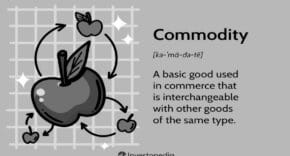Entering the world of the stock market can be both exciting and intimidating, especially for beginners.
The stock market is a dynamic and ever-evolving financial marketplace where individuals and institutions come together to buy and sell stocks and other securities. It serves as a platform for companies to raise capital and investors to participate in the growth and success of businesses.
Stock trading terms are the lingo used by day traders. You must know the basics before you can move on to learning patterns, strategies, and executing trades.
The more you know, the better prepared you can be to tackle the markets.
Understanding the stock market is essential for those seeking to grow their wealth and achieve long-term financial goals. The stock market offers diverse investment opportunities, from blue-chip companies to emerging startups.
Stock Market Definitions
Here are some basic words and definitions from the stock market world every stock investor should know about:
Stocks: Stocks represent shares of ownership in a company. When you purchase stocks, you become a shareholder and have the potential to benefit from the company’s profits and growth. Researching and analyzing companies before investing in their stocks is crucial to assess their financial health, performance, and future prospects.
Stock Exchange: A stock exchange is a marketplace where buyers and sellers trade stocks. Well-known exchanges include the New York Stock Exchange (NYSE) and the NASDAQ. Understanding how stock exchanges operate, including trading hours, listing requirements, and trading mechanisms, will help you execute buy and sell orders efficiently.
Ticker Symbol: Every stock on an exchange has a unique ticker symbol, an abbreviated representation of the company’s name. For example, Apple Inc. is commonly referred to as AAPL. Ticker symbols identify and track specific stocks when placing orders and monitoring their performance.
Market Order: A market order is an instruction to buy or sell a stock at the best available price in the market. This type of order guarantees execution, but the actual price at which the order is executed may vary slightly due to market fluctuations. Market orders are typically used when immediate execution is more important than the specific price.
Limit Order: A limit order is an instruction to buy or sell a stock at a specific price or better. When placing a limit order, you set the maximum price you’re willing to pay when buying or the minimum price you’re willing to accept when selling. Limit orders provide more control over the execution price but may not be immediately filled if the market doesn’t reach the specified price.
Dividend: Dividends are a portion of a company’s profits distributed to shareholders as cash payments. Dividends are usually paid regularly, such as quarterly or annually, and can provide investors with a steady income stream. Understanding dividend yield, payout ratio, and dividend history can help you assess the income potential of a stock.
Portfolio: A portfolio refers to the collection of investments, including stocks, bonds, and other assets, held by an individual or institution. Diversifying your portfolio by investing in different companies across various industries can help mitigate risk and maximize potential returns.
For those starting your trading journey, it’s essential to find a user-friendly trading platform that offers strong educational resources.
Practice with a demo account before you go live. Stay informed about the markets, and never stop learning.











